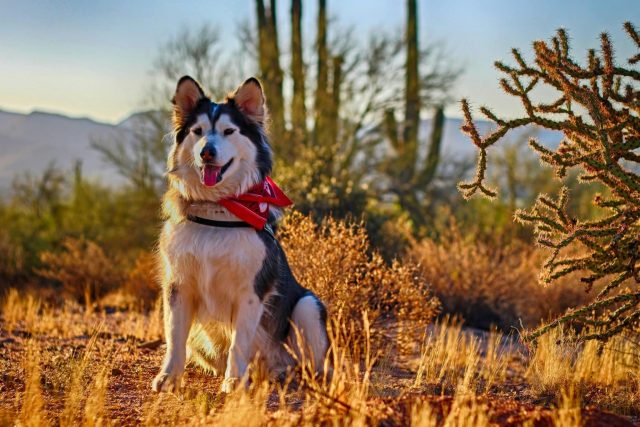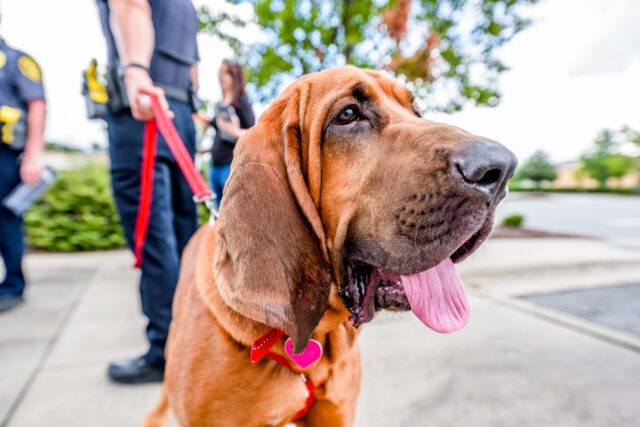Dogs are known for their ability to communicate through barking, and while some breeds are more reserved, others are famous for their vocal nature. Whether they are alerting their owners to strangers, expressing excitement, or simply seeking attention, these breeds have a lot to say. For potential dog owners who prefer a quieter home, it’s crucial to be aware of the breeds that are naturally more vocal. This article explores eleven of the noisiest dog breeds, detailing why each breed tends to be more vocal and what makes them unique. Understanding these breeds can help prospective owners make informed decisions about which dog might best fit their lifestyle.
11. Chihuahua
Chihuahuas, despite their small size, have big personalities and even bigger voices. These tiny dogs are known for their alertness and tendency to bark at anything they perceive as a threat or intruder. Their protective nature means they often bark to alert their owners to any unusual sounds or movements. Chihuahuas also bark out of boredom or to seek attention. Their high energy levels and need for mental stimulation can lead to excessive barking if not properly managed. While training and socialization can help, Chihuahuas will likely always be more vocal compared to other breeds.

10. Beagle
Beagles are well known for their vocal abilities, which stem from their history as hunting dogs. Bred to track and hunt, Beagles have a distinctive baying bark that they use to communicate with their human companions. This breed is naturally curious and alert, often barking to express excitement, seek attention, or signal the presence of something interesting. Beagles are pack animals and may bark excessively if left alone for long periods. Their vocal nature makes them excellent watchdogs, but it can also be a challenge for those living in close quarters with neighbors.

9. Miniature Schnauzer
Miniature Schnauzers are small but mighty in the vocal department. Known for their distinctive beard and eyebrows, these dogs are alert and protective, often barking to announce the presence of strangers or unusual activity. Their territorial instincts make them excellent watchdogs, but it also means they can be quite noisy. Miniature Schnauzers are intelligent and energetic, and without sufficient physical and mental stimulation, they may resort to barking out of boredom. Proper training and regular exercise can help manage their vocal tendencies, but they are naturally more inclined to be talkative.

8. Pomeranian
Pomeranians are small, fluffy dogs with a big bark. Despite their diminutive size, they are known for their loud and persistent barking. Pomeranians are alert and curious, often barking to alert their owners of anything out of the ordinary. Their vocal nature can be attributed to their history as watchdogs for royal families. Pomeranians are also highly energetic and require regular exercise and mental stimulation to prevent boredom-related barking. Training and socialization from a young age can help manage their barking tendencies, but they are naturally more vocal than many other breeds.

7. Yorkshire Terrier
Yorkshire Terriers, or Yorkies, are small dogs with a lot of personality and a propensity for barking. Originally bred as rat hunters, Yorkies are alert and energetic, often barking to signal the presence of intruders or to express excitement. Their vocal nature can be a challenge for owners who prefer a quieter home environment. Yorkies are also known to bark out of boredom or to seek attention. Proper training, socialization, and regular exercise can help manage their barking, but their natural tendency to be vocal is a trait that potential owners should be prepared for.

6. Dachshund
Dachshunds, with their distinctive long bodies and short legs, are known for their loud and persistent barking. Bred to hunt badgers and other burrowing animals, Dachshunds are naturally alert and protective. They often bark to signal the presence of strangers or to alert their owners to anything unusual. Dachshunds can also bark out of boredom or anxiety, making it important for owners to provide sufficient exercise and mental stimulation. Training and socialization from a young age can help manage their vocal tendencies, but they are naturally more inclined to bark compared to other breeds.

5. Siberian Husky
Siberian Huskies are known for their distinctive howling rather than barking. These vocal dogs have a wide range of vocalizations, including howls, yodels, and whines. Bred as sled dogs, Huskies are highly energetic and social, often using their voices to communicate with their owners and other dogs. Their vocal nature can be a challenge for owners living in close quarters, as Huskies are known to howl loudly and frequently. Providing regular exercise and mental stimulation can help manage their vocal tendencies, but potential owners should be prepared for a noisy companion.

4. West Highland White Terrier
West Highland White Terriers, or Westies, are small, spirited dogs known for their loud and persistent barking. Bred to hunt small game, Westies are naturally alert and protective, often barking to signal the presence of intruders or to alert their owners to anything unusual. Their vocal nature can be a challenge for owners who prefer a quieter home environment. Westies are also highly energetic and require regular exercise and mental stimulation to prevent boredom-related barking. Training and socialization from a young age can help manage their barking, but they are naturally more vocal than many other breeds.

3. Jack Russell Terrier
Jack Russell Terriers are small, energetic dogs with a big bark. Bred for hunting, these dogs are naturally alert and curious, often barking to signal the presence of intruders or to express excitement. Their vocal nature can be a challenge for owners who prefer a quieter home environment. Jack Russells are also known to bark out of boredom or to seek attention. Proper training, socialization, and regular exercise can help manage their barking, but their natural tendency to be vocal is a trait that potential owners should be prepared for.

2. Alaskan Malamute
Alaskan Malamutes are large, powerful dogs known for their distinctive howling rather than barking. These vocal dogs have a wide range of vocalizations, including howls, yodels, and whines. Bred as sled dogs, Malamutes are highly energetic and social, often using their voices to communicate with their owners and other dogs. Their vocal nature can be a challenge for owners living in close quarters, as Malamutes are known to howl loudly and frequently. Providing regular exercise and mental stimulation can help manage their vocal tendencies, but potential owners should be prepared for a noisy companion.

1. Bloodhound
Bloodhounds are large, scent-tracking dogs known for their distinctive baying bark. Bred for hunting and tracking, Bloodhounds have a deep, resonant voice that they use to communicate with their owners and other dogs. Their vocal nature can be a challenge for owners living in close quarters, as Bloodhounds are known to bark loudly and frequently. Providing regular exercise and mental stimulation can help manage their vocal tendencies, but potential owners should be prepared for a noisy companion. Bloodhounds are also known for their affectionate and loyal nature, making them excellent family pets despite their vocal tendencies.

In conclusion, these eleven dog breeds are known for their vocal nature, making them some of the noisiest breeds around. Each breed has its unique characteristics and reasons for being more vocal, whether it’s for alerting their owners, expressing excitement, or simply seeking attention. Proper training, socialization, and regular exercise can help manage their barking tendencies, but potential owners should be prepared for a more vocal companion. Understanding these breeds can help prospective dog owners make informed decisions about which dog might best fit their lifestyle and home environment.
 Toledo, United States.
Toledo, United States.